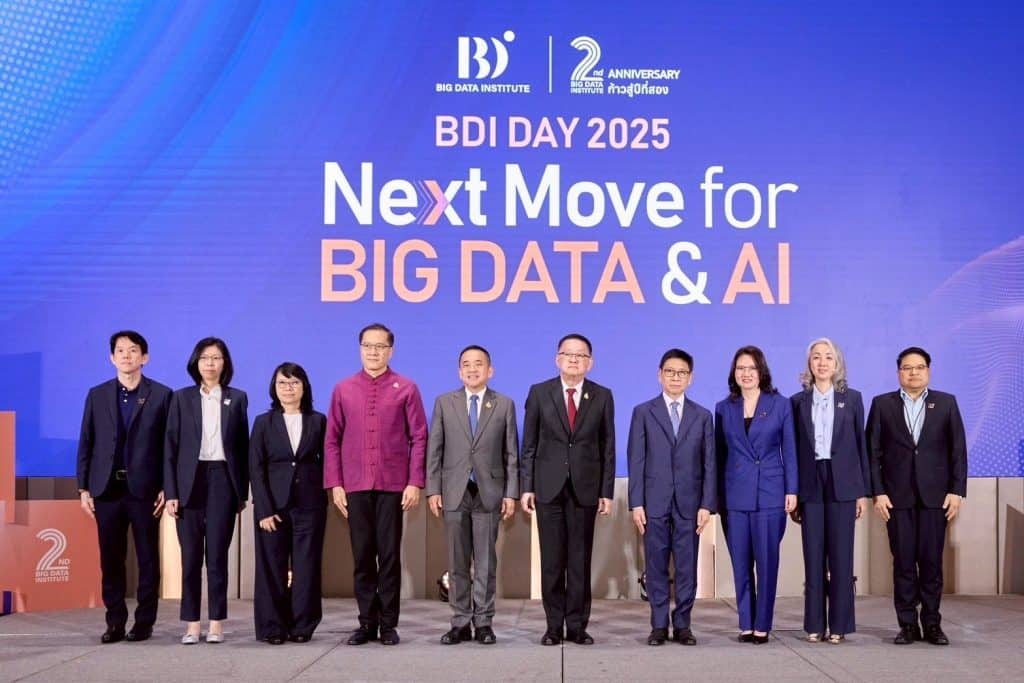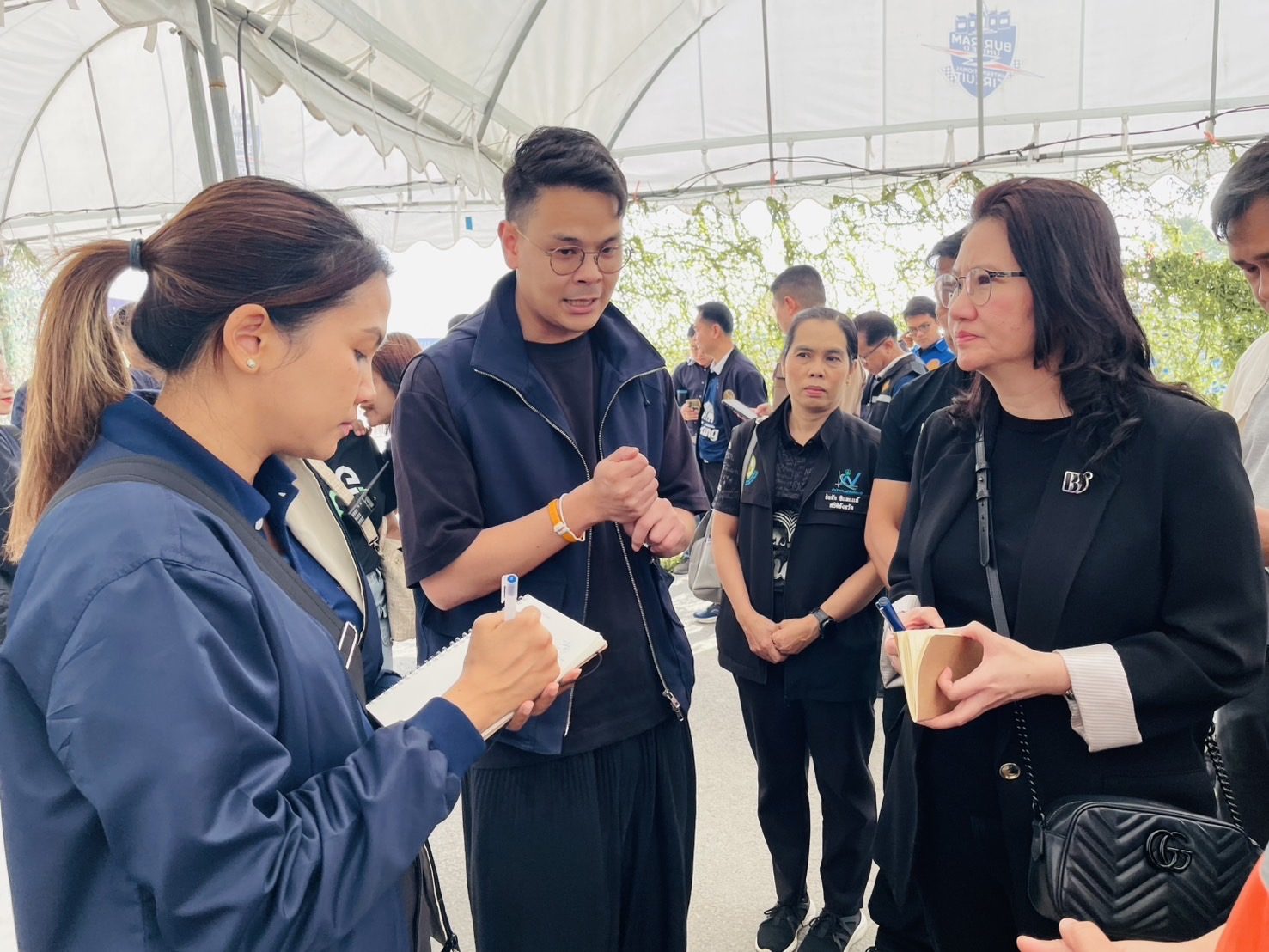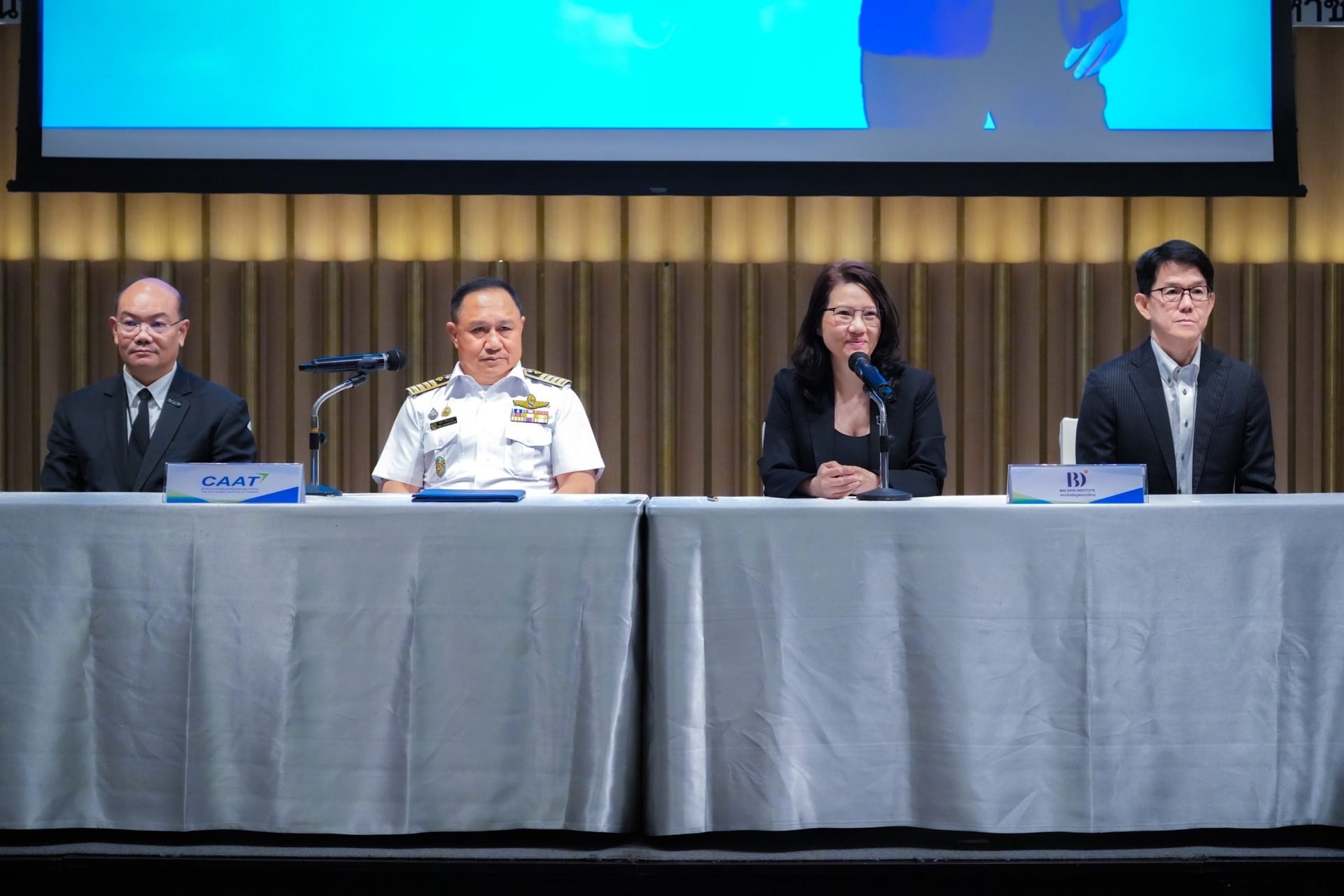Bangkok – May 27, 2025. The Big Data Institute (Public Organization), or BDI, today hosted “BDI Day 2025: Next Move for Big Data and AI,” an event highlighting the next steps in leveraging Big Data and AI for Thailand's economic and social development. The event featured the Deputy Prime Minister and other senior executives presenting their vision and new direction for national transformation through three core pillars: The Data Integration and Intelligence Platform (D-II), ThaiLLM, an open-source Thai language AI infrastructure, and Micro-credential learning program. These initiatives collectively aim to drive economic and social progress, transforming government agencies into data-driven systems that are efficient, transparent, and outcome-focused, ultimately elevating Thailand across all dimensions.

Mr. Prasert Jantararuangtong, Deputy Prime Minister and Minister of Digital Economy and Society, stated, “Thailand is entering a critical phase in its digital transformation, where data and artificial intelligence (AI) are no longer just supporting tools but are becoming the country’s new foundational infrastructure. The government is therefore accelerating proactive digital policies to ensure seamless integration between technology and policy. A key milestone is the establishment of the National AI Committee, tasked with setting the direction for effective, transparent, and highly beneficial AI development in Thailand. This is accompanied by investments in essential infrastructure such as cloud services, data centers, GPU computing, and open-source platforms to support the long-term growth of digital innovation.”
Another government key initiative is the establishment of the National Data Bank, which the government envisions as a central mechanism for securely and transparently collecting, managing, and enabling access to the nation’s big data. BDI plays a leading role in designing the system and driving its implementation, with the goal of making data the foundation for policy planning, public service delivery, and the development of innovations that address the country’s needs.
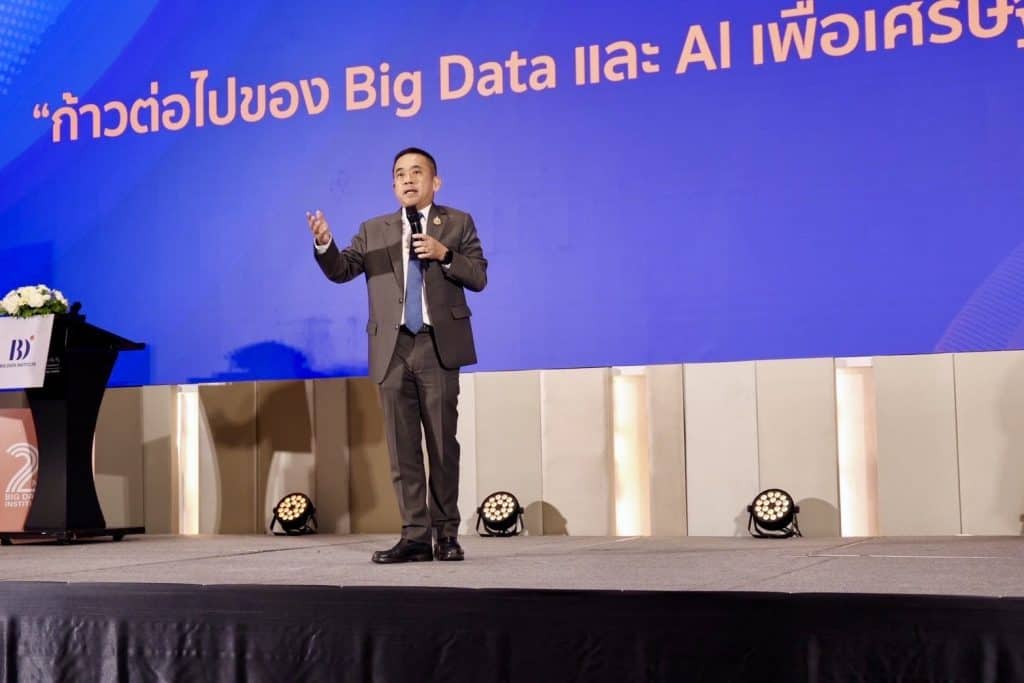
Prof. Wisit Wisitsora-At, Permanent Secretary of the Ministry of Digital Economy and Society, , stated that the Ministry is focused on establishing a systemic foundation to position data and AI as core mechanisms in public administration and as key drivers of Thailand’s digital economy. This includes advancing a strategic plan for big data utilization aimed at building a connected, secure, and auditable data ecosystem. The Ministry also promotes AI governance through a clear ethical framework to ensure that the adoption of new technologies in Thailand is responsible and benefits society.

Mr. Kulit Sombatsiri, Chairman of the Big Data Institute, stated that over the past two years, BDI has laid the groundwork to shift Thailand’s data ecosystem from siloed operations to a more systematic, collaborative approach. Initiatives such as Health Link, which connects healthcare data nationwide, Travel Link, which analyzes spatial travel data, and the City Data Platform (CDP), which enables data-driven urban decision-making, all signify a true structural shift in Thailand’s data landscape. “We are proud to see many government agencies beginning to use in-depth data as a foundation for policymaking, which reflects BDI’s goal.”
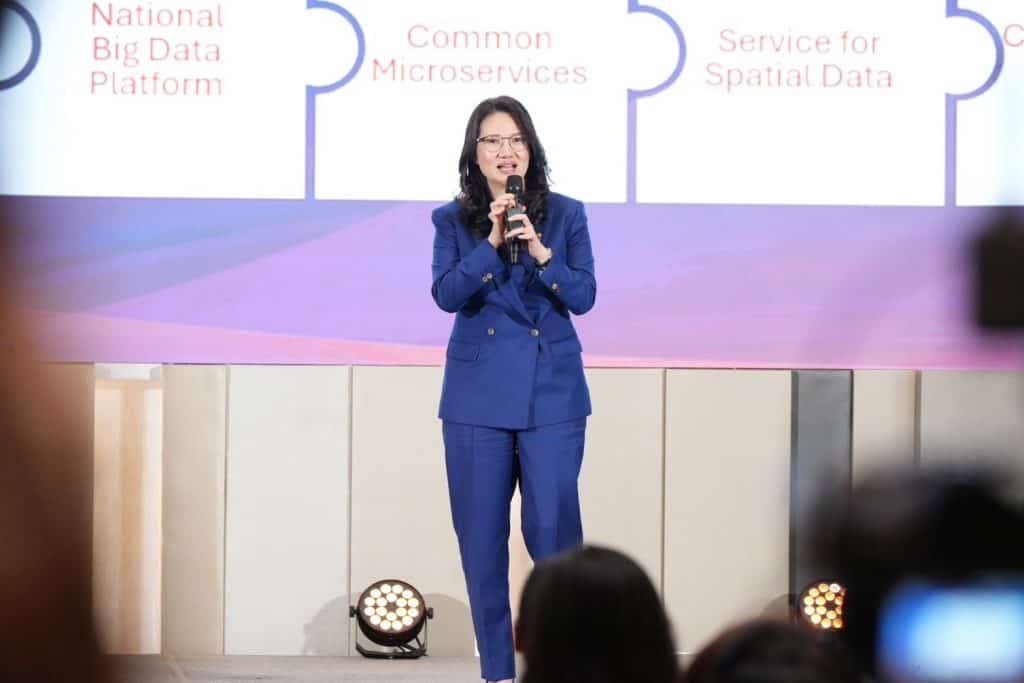
Assoc. Prof. Dr. Tiranee Achalakul, President of the Big Data Institute, stated that BDI plays a key role as the national data-driving organization, with a clear and tangible goal: to ensure that data from all sectors is not only systematically collected but also practically usable. The aim is to transform data into a powerful tool for policymaking, enhance public services, and foster innovations that genuinely address the needs of the people.
At the heart of this mission is the development of the Data Integration and Intelligence Platform (D-II). Rather than creating an entirely new data system, DII is designed to integrate and connect existing data from various sectors, supporting more effective policy planning and propelling Thailand toward becoming a data-driven nation. The platform aims to harness data for sustainable economic and social development through several key services. These include the creation of a Data Linkage Engine, which serves as a technological backbone enabling seamless data connection and interoperability with systems such as the Data Catalog, ensuring a robust infrastructure that can connect with agency-level data sources. It also provides advanced Dashboard and Analytics Tools that empower government agencies to perform in-depth data analysis and make informed decisions based on real, interconnected datasets. Additionally, D-II incorporates Central Hashing, a secure method of representing sensitive data in an irreversible format that complies fully with data protection laws, preventing unauthorized access while safeguarding individual privacy.
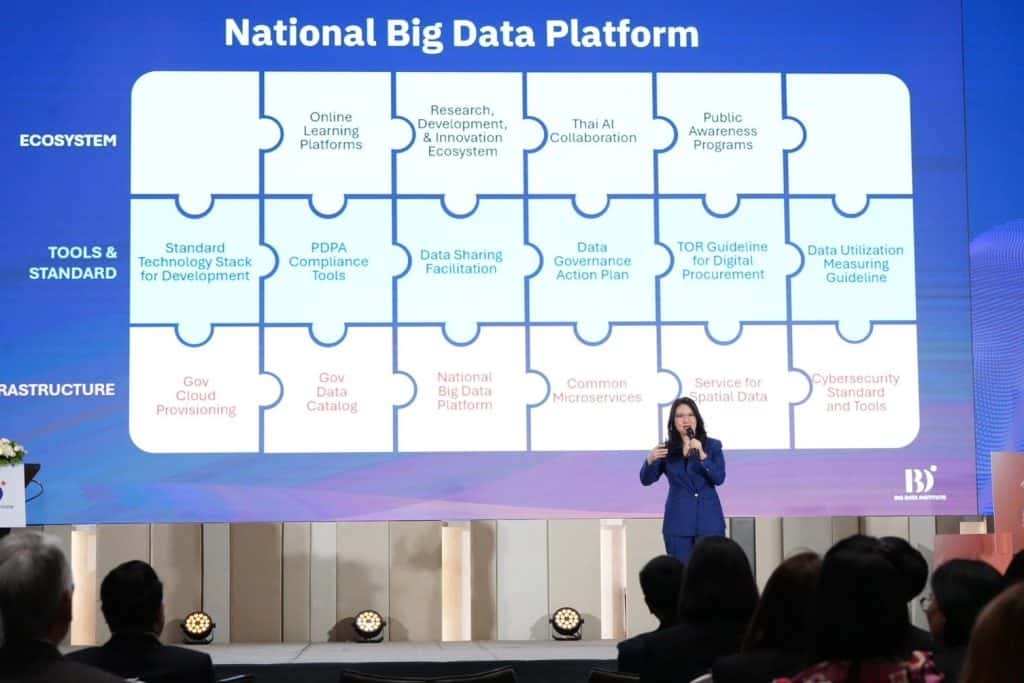
In addition, BDI is actively advancing the development of ThaiLLM (Thai Large Language Model), an open-source, open-license AI infrastructure tailored specifically for the Thai language. Funded by the Digital Economy and Society Development Fund, this initiative represents a collaborative effort between BDI and leading institutions, including the National Electronics and Computer Technology Center (NECTEC), the Vidyasirimedhi Institute of Science and Technology (VISTEC), the Artificial Intelligence Entrepreneur Association of Thailand (AIEAT), and the Artificial Intelligence Association of Thailand (AIAT). ThaiLLM marks a significant milestone in uniting Thailand’s foremost AI organizations to co-develop a foundational language model that understands the unique linguistic and cultural context of Thailand. Designed to be widely accessible and adaptable, this infrastructure empowers government agencies, private sector entities, and technologists across the country to build upon it and drive innovation.
The ThaiLLM project has been underway for three months and has already achieved significant progress. Thai language data has been successfully gathered from key sources, including the Ministry of Digital Economy and Society, the Office of the Council of State, and the National Library. In parallel, the ThaiLLM Data Bank has been developed and is now operational, housing over 245 GB of Thai language data. This dataset has been tokenized into approximately 55 trillion tokens, accounting for 55% of the target volume required for the initial development of small- and medium-sized models.
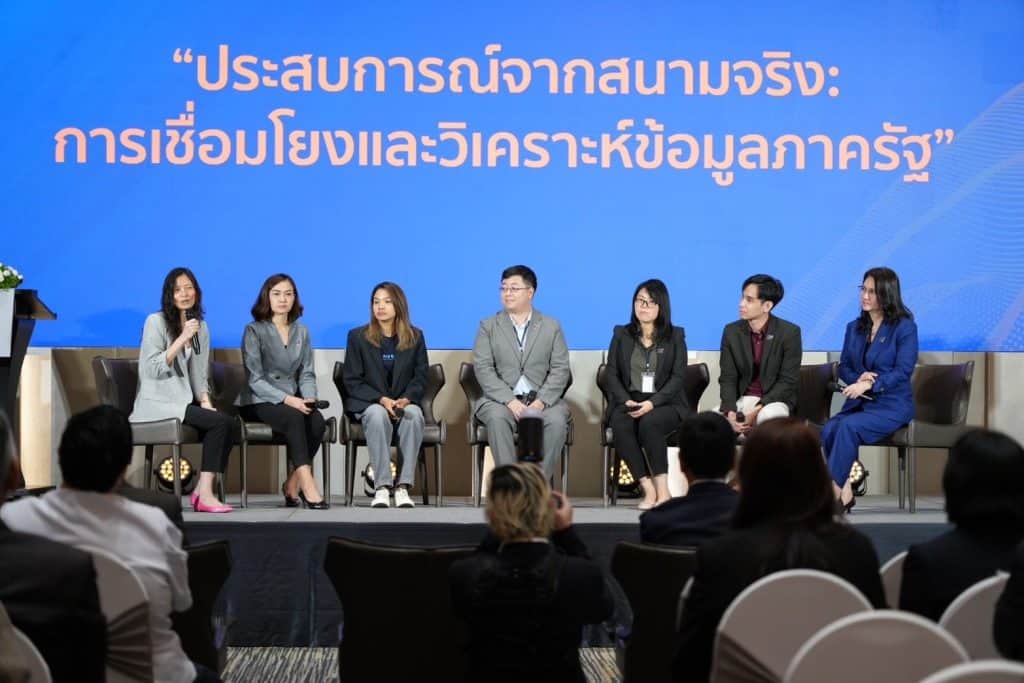
At the same time, BDI is accelerating the development of human resource capabilities by designing a Micro-Credential learning program focused on Big Data, AI, and LLM technologies. The program aims to equip Thai professionals with the skills to understand, design, and apply deep technologies through practical, real-world learning experiences. It emphasizes competency-based instruction and skill assessment through a Micro-Credentials approach, laying a strong foundation in data analysis and enabling learners to apply their knowledge in line with global technological advancements.
Assoc. Prof. Dr. Tiranee further stated that this project also serves as a key mechanism for advancing Thailand’s AI collaboration and strengthening the national AI ecosystem in line with the strategies outlined by the National AI Committee. It supports efforts to reduce reliance on foreign technologies and positions Thailand as an emerging regional leader in AI. BDI envisions ThaiLLM not only as a technological infrastructure, but also as a catalyst for national collaboration—bringing together government agencies, private sector stakeholders, and Thai innovators to jointly build the country's technological foundation. Future initiatives can build upon this collaborative framework to drive continued progress.

The Data Integration and Intelligence Platform (DII), ThaiLLM, and Micro-Credential Learning represent the three core pillars that BDI is advancing in parallel—enabling Thailand to fully harness the power of data, drive systemic transformation, and elevate the nation with technology purpose-built for the Thai people,” concluded Assoc. Prof. Dr. Tiranee.
- sirirat_bdihttps://bdi.or.th/en/author/sirirat_bdi/
- sirirat_bdihttps://bdi.or.th/en/author/sirirat_bdi/
- sirirat_bdihttps://bdi.or.th/en/author/sirirat_bdi/
- sirirat_bdihttps://bdi.or.th/en/author/sirirat_bdi/10 October 2025


